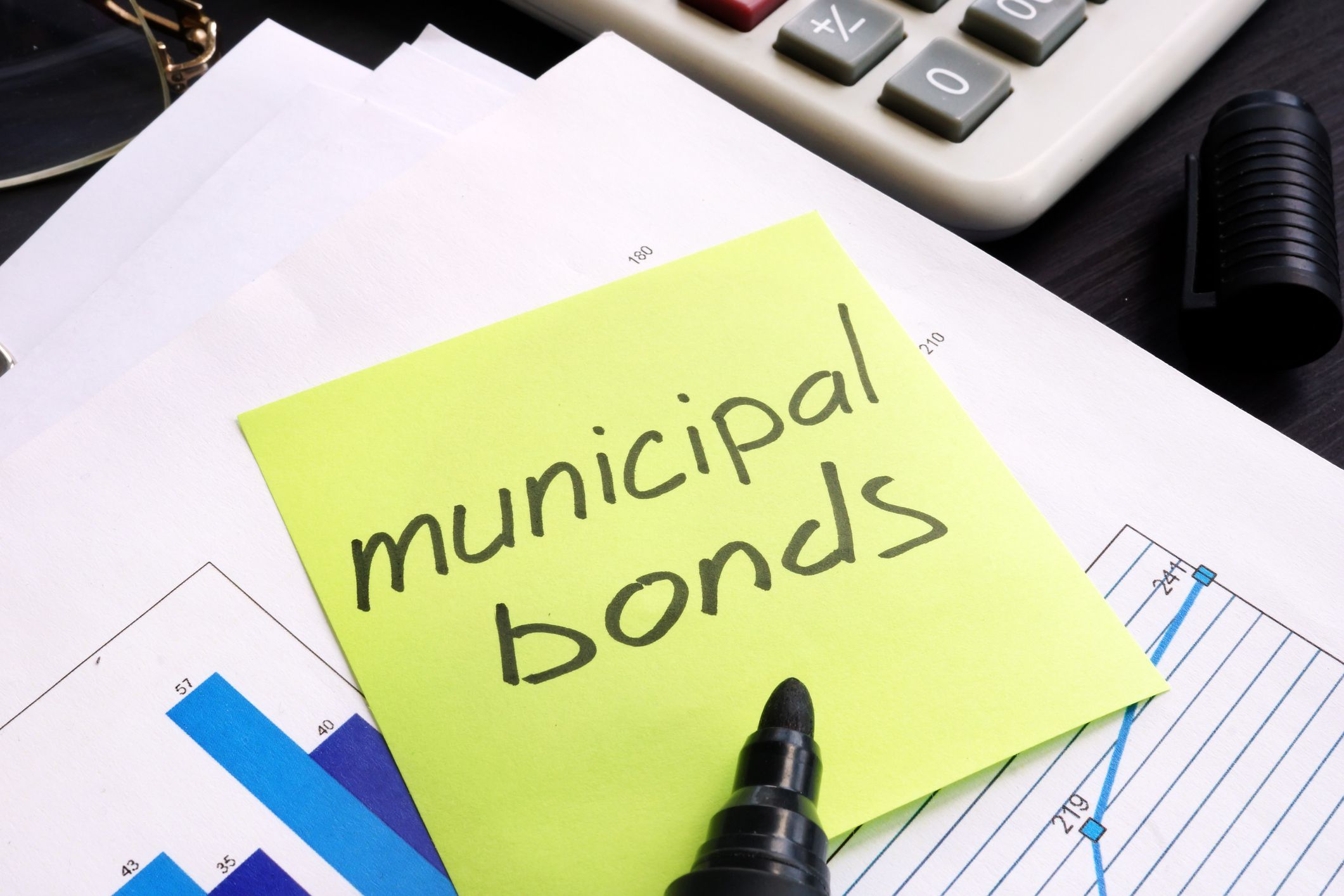[ad_1]
Investing in municipal bonds is a good way to preserve capital while generating interest. Most of them are exempt from federal taxes, and some are tax-free at the state and local level as well. Municipal bonds, also called munis, help build infrastructure in your area. Munis are often considered a separate asset class, so it pays to know the muni bond basics.
Key Takeways
- Investing in municipal bonds is a good way to preserve capital while generating interest.
- Municipal bonds hold several tax advantages over corporate bonds.
- Another advantage that munis have over corporate bonds is a much lower rate of default.
- Municipal bonds are also relatively liquid, but investors need to be careful of the bid-ask spread.
Tax Advantages of Municipal Bonds
Municipal bonds hold several tax advantages over corporate bonds. While the interest on a corporate bond is probably higher, you will have to pay taxes on it. Most munis are exempt from federal taxes. If you invest in a public-purpose municipal bond, then it is also likely to be alternative minimum tax (AMT) free. When you invest in a local municipal bond, it will usually be exempt from your state’s income taxes too.
Muni tax issues can be tricky, so you should always check your local tax laws to be sure. If you invest in a municipal bond issued in another state, you will probably have to pay taxes. When you factor in the tax impact, a completely tax-free municipal bond will usually present a more profitable opportunity.
The tax advantages of muni bonds depend on where you live and how much you make when you receive the interest. Several U.S. states have no income tax, so exemption from state taxes offers no advantage. On the positive side, residents of states without income taxes can buy muni bonds from any state and remain 100% tax-free. Progressive taxes mean that rates usually increase with income, so higher-income individuals benefit more from muni bond tax exemptions.
Muni bonds are often a good investment for people with high incomes, such as celebrities, living in states with high income taxes, such as California. A retiree with limited income living in a state without income taxes, such as Florida, benefits less from the tax exemptions of municipal bonds.
Should You Consider Muni Bonds?
Low Default Rates
Another advantage that munis have over corporate bonds is a much lower rate of default. According to Moody’s, the annual municipal bond default rate was about 0.03% between 2009 and 2014. In the long run, the corporate bond default rate is about 2.5% per year.
Financial gurus Warren Buffett and Meredith Whitney predicted catastrophe in the municipal bond market, but those predictions had not come true as of 2019. The majority of municipalities in the United States have improved their credit ratings since the 2008 financial crisis. However, this improvement does not mean that default risk has been eliminated.
Types of Municipal Bonds
There are two types of muni bonds. General obligation bonds are funded directly by tax revenues. They are the safest type of municipal bond, but they often have the lowest interest rates.
Revenue bonds obtain money from ticket sales, bills, tolls, or rents from municipal government projects. These are used to help build infrastructure, but their returns are less certain because they depend on the success of the particular undertaking.
Are Municipal Bonds Liquid?
Municipal bonds are also relatively liquid, but investors need to be careful of the bid-ask spread. A bid-ask spread of just 1% can substantially reduce the returns of a muni bond yielding 2%.
One solution is to invest in a municipal bond mutual fund, but you must be sure the fund is no load. A high load fee can be just as bad as a high bid-ask spread.
Muni bond ETFs are another potential solution. However, the bid-ask spread can also be high for low-volume ETFs. The best muni ETFs usually have low bid-ask spreads.
Muni Bond ETFs
Municipal bond ETFs also offer more diversification than individual munis. With exposure to so many municipal bonds, a single default would not have a significant impact on the ETF. Most municipal bond ETFs keep their portfolios well-balanced, with one municipal bond’s share of net assets typically limited to 2% or less.
The biggest downside of municipal bond ETFs is that it is possible to suffer capital losses when interest rates rise. With an individual muni bond, you can buy and hold and get all your capital back when the bond matures.
There are also municipal bond ETFs that are AMT free. AMT free ETFs include the iShares Trust National Muni Bond ETF (MUB) and the VanEck Vectors AMT-Free Short Municipal Index ETF (SMB).
The Bottom Line
Municipal bonds aren’t bulletproof, but they are one of the safest investment vehicles you will find. They also offer substantial tax advantages and are very liquid when held as ETFs. These benefits lead to lower returns, but those returns will be tax-free.
[ad_2]
Image and article originally from www.investopedia.com. Read the original article here.

